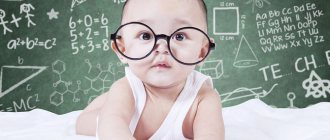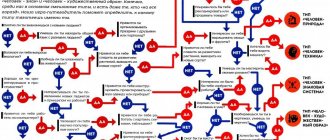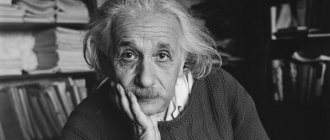Adviсe
- Giftedness
- Talent
- Genius
- What makes talented people different?
- Conclusion
Intellectual skills, creative tasks of a person, potential are explained by various concepts used in scientific works. The terms are of interest to scientists, psychologists and educators. The opinions of researchers are the basis for creating pedagogical and psychological methods that allow people to find directions for development.
Giftedness
Scholars have not established a universally accepted term that is used in all classical educational books. Scientific books use the option proposed by psychologist V. Stern.
Giftedness is a person’s ability to adapt to emerging needs, to act to achieve goals, perceiving external factors, and this is done consciously with the help of developed thinking.
Despite criticism of the concept by some scientists, the term is still used for interpretation. It is generally accepted that this ability is a natural gift that cannot be determined by heredity. Giftedness is a function of a person’s living conditions, a function of a developed personality, therefore it manifests itself at every stage of development and is directly related to the life of an individual.
Natural potential cannot be determined by a person’s talent. Inclinations make up the spectrum of conditions that are required for personality development. Giftedness is used not to express internal inclinations for self-improvement, but to characterize a person, internal abilities, and internal abilities and external manifestations are closely related.
The manifestation of the inherent potential is possible under favorable conditions for development and achievement of assigned tasks. It is used to express the potential that a person has, the psychological components that allow him to create a reality that corresponds to his wishes and take the necessary actions. Suitable external conditions for dynamic change are imperative. For example, a student needs a curriculum. Stimulating development requires serious demands that are achieved with effort.
Giftedness can be special. In this case, the relationship between internal potential, mental characteristics and the requirements of a certain sphere that the individual chooses is considered. The correlation manifests itself not only at the abstract level, but also in ongoing events, as a result of which a person’s abilities are formed. The individual may be capable of completing assigned tasks. At the same time, the manifestation of general talent is assumed, which must be assessed taking into account external factors influencing a person’s life.
In the scientific literature, the term causes active debate. Many scientists are convinced of the absence of general talent, which must be understood as intellectual potential, memory, and the ability to solve assigned problems. To compare mental and real age, an intellectual quotient is used, which is designated IQ and allows you to determine the capabilities of an individual. IQ determines the potential inherent in nature and the speed at which a person develops, as a result of which the level of development at a certain stage of life is established.
In the psychological sphere, giftedness is part of the human structure, so it has a close connection with character. It is assumed that characteristics manifest themselves under the influence of upbringing and external conditions, the favorability of which varies. Psychologists look at the type of thinking and temperament, trying to determine the capabilities of individuals.
Special abilities directly depend on the field of activity in which a person is involved. The activity must be active and effective for the manifestation of properties that are characteristic of the individual.
As a result, what stands between giftedness and special abilities is the ability to correlate the level of human development and the pace of improvement. These aspects are considered by teachers who are responsible for the future of children.
In genetic terms, the relationship between general and special development is stable. For this reason, geneticists and scientists believe that a person’s future is determined not only by external conditions, but also by natural potential, which is determined by genetics. Understanding giftedness depends on the significance of the chosen direction of activity, the success of other people who show their inclinations.
Scientists believe that giftedness is a quantitative concept. The qualitative approach cannot be fully used. The question regarding the definition of inherent abilities remains open.
At the same time, C. Spearman notes that mental talent should be determined by the mental energy that is characteristic of a person. This quantitative approach to interpretation is correct, because it allows one to assess the development prospects of an individual.
Abilities differ at a qualitative level: one person has the capabilities and potential for one area, and another person has the potential for another area. External conditions influence the degree to which internal potential is manifested, so they deserve attention.
Psychologists evaluate qualitative differences to open people’s prospects and proper self-development. Researchers study information and experimental materials to create an assessment of an individual's abilities. The goal is to determine the person's abilities that will allow him to achieve success.
Classification of abilities
The success of any activity is determined not by the presence of any one ability, but by a complex of abilities.
The differences in requirements imposed by different types of activities are reflected in the classification of abilities. They are usually divided into two groups: general and special. In turn, they are divided into elementary and complex, and within them specific types are distinguished.
General Elemental Abilities
They are inherent in all people, although they are expressed differently in each person. The manifestation of these abilities corresponds to a simple action: sensory, mental, mnemonic, volitional. Through exercise, an action can become a skill.
- Ability to sense
- Ability to Perceive
- Ability to remember
- Ability to think
- Speech ability
- Ability to imagine
- The ability to experience
Special Elemental Abilities
They are no longer found in all people. They require qualitative expression of certain mental processes. These abilities can be developed through training, but within the limits determined by inclinations.
- Eye gauge
- High olfactory sensitivity
- Ear for music
- Verbal-logical memory
- Critical thinking
General Complex Abilities
They are also inherent in all people, and each of them is a complex structure that characterizes the properties of the human personality.
- Ability to work
- Ability to communicate
- Ability to play
- Ability to learn
Special Complex Abilities
They are usually called professional abilities, since they relate to a specific professional activity. They are not common to all people, and their severity can vary greatly.
- Mathematical
- Musical
- Structural and technical
- Artistic
- Organizational
Talent
Talent is a person’s ability to achieve success and recognition in areas in which initial potential is realized.
The degree of inherent potential determines the ability to act originally and independently, to solve assigned tasks, regardless of their specificity and complexity. Talent presupposes the potential to show inclinations in the field, offering new ideas, implementing original and perfect actions, and achieving respect at the public level.
The child shows the first signs of inherent talent, which is realized in a certain direction. In some cases, manifestation occurs later, for example, in adulthood during significant events. Talent develops and is realized if favorable conditions arise in culture, history, social order, if a person receives a full education.
Talent manifests itself in all areas, not just in art. Realization occurs in organizational work, pedagogy, technology and science. The sphere is determined by the underlying inclinations.
To develop talent, persistence in searching for areas of self-improvement and the manifestation of first works is required. For this reason, talented people should be drawn to work, without which it is impossible to imagine life.
Abilities and potential are the basis of talent. The range of inclinations and the ability to implement original and promising ideas are characteristic of the individual, therefore they are considered a unique gift.
The results of actions, the heights that a person reaches by making efforts, make it possible to understand the presence of talent or to refute the assumption. Results that are novel and original are the basis for forming an affirmative opinion.
What parents should know so as not to ruin their child’s potential
Parents should be aware of several points. If you follow the recommendations presented, you will have a much greater chance of results.
- You can't limit a child's curiosity. You need to answer questions in detail and to the point. Encourage them to look for answers on their own.
- You cannot use an imperative model of education. It is necessary to promote creativity, initiative and independence.
- The child should be encouraged for independent activities.
- It is necessary to create a favorable environment for the development of certain abilities. Emotional, logistical.
- If necessary, specialists and mentors are brought in for work.
These are the main ways of development.
What makes talented people different?
Researchers interact with talented individuals, understanding how they differ from ordinary citizens. Talented individuals experience dissatisfaction with the results of their work, as a result of which they strive for self-improvement, self-education and a change in thinking in order to achieve their goals. Geniuses refuse many offers, concentrating on the desired results.
Pianist G. Neuhaus noted that geniuses and talents are born. Despite this, people create a culture that varies in breadth, democracy and loyalty of manifestations. Favorable conditions allow people with inherent potential to become geniuses, talents, and achieve success. For this reason, social society and the specifics of upbringing determine the possibilities for the manifestation of inherent potential and talent.
There is an opinion that nature rests on the children of talented parents. This opinion is confirmed by experience. Talent is inherited to a small extent. Research has led to the following conclusions: mental skills are closer to biological parents, which is due to the hereditary pattern, and not to adoptive parents. Similarity in potential and inherent inclinations does not appear in every situation, and the similarity decreases as a person grows older, who is faced with a different upbringing scheme, experiences personal events, and undergoes changes based on external factors.
Results are achieved not only on the basis of natural abilities, but also under the influence of motivation, conditions for the manifestation of existing potential. Pensioners get a chance to show their talent, although during their life there were no favorable factors for discovering inclinations. Over time, retirees achieve success they never dreamed of before.
Congenital or acquired?
To what extent are abilities dependent on natural, biological factors, and to what extent on learning and environmental influences?
Modern science has established that the genotype determines only the theoretically possible boundaries of the development of abilities, and the environment and upbringing determine the extent to which they will be realized.
The relationship between these factors is assessed in different ways. Some psychologists give the leading importance to heredity. Indeed, Wolfgang Mozart's musical talent was revealed at the age of three, when the influence of upbringing and training could not yet be decisive. In addition, it is known that the lack of achievements at an early age does not always indicate a lack of ability. For example, composer N.A. Myaskovsky, writers V. Scott, I.A. Goncharov, S.T. Aksakov, biologists K. Linnaeus and L. Pasteur (and many other famous people) showed themselves at a rather late age.
The opposite position is that abilities are entirely determined by upbringing and training. An example is the cases when the children of the most primitive tribes of Africa, who received a proper education, are no different from Europeans, and, conversely, cases of early social isolation (“Mowgli”), which indicate the impossibility of normal human development outside society.
Research into the nature of abilities
Interesting studies have been conducted to find out the relationship between heredity and environment. For example, they studied the pedigrees of prominent representatives of art and science.
It was found out that the great-grandmothers of L.N. Tolstoy and A.S. Pushkin, Olga and Evdokia Trubetskoy, were sisters. There were about 26 musicians in the family of Johann Sebastian Bach with outstanding musical abilities. This family was so famous that all city musicians at that time were called “Bachs.”
Unambiguous and accurate results were obtained when studying the degree of similarity of mental processes and behavior in identical twins. As you know, identical twins have the same set of chromosomes. This means that all the differences between them are explained by upbringing and environmental influences.
Even in cases where identical twins were separated immediately after birth and raised in different families, they turned out to be much more similar to each other than fraternal twins who were raised together.
The role of hereditary factors was also confirmed by data obtained from a study of adopted children adopted immediately after birth. As they grew up, their mental abilities were much more in line with those of their biological parents than their adoptive parents.
There were also pairs of identical twins, the similarity between which was not so striking, and in all pairs it sharply decreased with age.
Conclusion
Scientists debate the nature of human potential. Disputes are developing actively. Is potential an innate gift? Does potential development occur during life? Is it worth paying attention to the saying: the manifestation of talent is one percent of natural ability and 99% of sweat? Each point has supporters and opponents.
The biological influence on abilities and their manifestation depends on genetic inheritance. Upbringing and favorable factors reveal inclinations and accelerate development. The potential will appear without teachers and psychologists, but later.
Other scientists are convinced: the psyche and character develop in the process of education. For this reason, inclinations are formed in people. The children of primitive peoples received instruction and then conformed to the educated principles. Mowgli children, under the influence of unfavorable conditions, lose contact with society.
Abilities are formed and developed on the basis of inclinations, hereditary and innate. Potential, knowledge and skills characterize a person as an individual, a subject of activity.
Psychologists and scientists have not come to a single concept within the framework of personality theory, but in every era geniuses and talents are born who gain popularity and achieve success.











